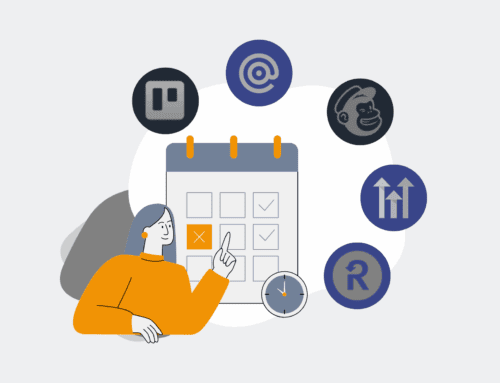What Recruiters Wish They Knew About Interview Automation
For many recruiters, the idea of “interview automation” conjures images of scheduling tools, maybe a calendar link here or there. They see it as a minor convenience, a small efficiency gain in a sea of complex human interactions. But what if that perception is costing them, and their organizations, hundreds of hours and countless perfect-fit candidates? What recruiters truly wish they knew about interview automation is its transformative power – extending far beyond simple scheduling to redefine the entire hiring journey.
The truth is, most recruiting teams are stuck in a manual quagmire. They grapple with endless email chains to coordinate availability, manage feedback forms that get lost in inboxes, and conduct pre-screens that are repetitive and prone to human bias. This isn’t just inefficient; it’s a drain on valuable recruiter time, pushing high-value tasks like candidate engagement and strategic talent sourcing to the back burner. What they don’t realize is that modern interview automation, especially when infused with AI, is a sophisticated system designed to tackle these exact bottlenecks, creating a seamless, data-rich, and ultimately more human experience.
Beyond the Calendar Invite: The Strategic Edge
The first misconception to dismantle is that automation merely handles scheduling. While crucial, this is just the tip of the iceberg. True interview automation integrates across the entire candidate lifecycle. Imagine a system that not only finds a suitable time slot but also:
Automated Pre-Screening and Assessment
Recruiters spend an inordinate amount of time on initial screening calls, asking the same qualifying questions repeatedly. Advanced automation platforms, often powered by conversational AI, can conduct initial pre-screen interviews. These aren’t just chatbots; they can ask dynamic, role-specific questions, evaluate responses against predetermined criteria, and even analyze tone and sentiment. This process ensures that only truly qualified candidates progress, freeing up recruiters for deeper, more meaningful conversations.
Streamlined Feedback Collection and Analysis
Gathering timely and comprehensive interview feedback is a perennial challenge. Interview automation can automatically distribute feedback forms to interviewers immediately after a session, send reminders, and consolidate responses into a centralized dashboard. Crucially, AI can then analyze this qualitative and quantitative data, highlighting key themes, potential red flags, and areas of alignment against job requirements, providing insights that a recruiter would otherwise spend hours manually aggregating.
Enhanced Candidate Experience (Without the Manual Effort)
A positive candidate experience is paramount for attracting top talent, yet it’s often jeopardized by slow responses and inconsistent communication. Automation ensures candidates receive instant confirmations, timely reminders, relevant pre-interview materials, and follow-up communications, all without a recruiter lifting a finger. This consistency and responsiveness reflect positively on the organization and keep candidates engaged throughout the process.
Unveiling Hidden Biases and Fostering Fairness
Another profound benefit often overlooked by recruiters is automation’s role in mitigating unconscious bias. Human decisions, even well-intentioned ones, are susceptible to biases related to accent, appearance, or personal rapport. Automated screening and structured interview processes can standardize the evaluation, ensuring every candidate is asked the same core questions and assessed against objective, predefined metrics. This leads to fairer hiring practices and a more diverse talent pool, which is a powerful advantage in today’s competitive landscape.
The Data Goldmine: From Gut Feel to Strategic Insight
Recruiters often operate on intuition and fragmented information. Interview automation transforms this by creating a rich data trail. From the average time-to-interview to conversion rates at each stage, and even insights into which questions yield the most predictive answers, the data generated is invaluable. This allows recruiting leaders to identify bottlenecks, refine their strategies, and make data-driven decisions that improve overall hiring efficacy and ROI – a level of insight that manual processes simply cannot provide.
Making the Shift: From Tactical Chore to Strategic Impact
What recruiters truly wish they knew is that interview automation isn’t about replacing human judgment; it’s about elevating it. By offloading the mundane, repetitive, and administrative tasks, automation empowers recruiters to focus on what they do best: building relationships, understanding talent, and strategically connecting candidates with opportunities. It transforms the recruiting function from a reactive administrative chore into a proactive, data-driven, and highly strategic arm of the business.
For organizations seeking to save upwards of 25% of their day by eliminating human error and focusing on high-value work, understanding and implementing advanced interview automation is no longer a luxury—it’s a necessity. The biggest hurdle isn’t the technology itself, but often the perception. It’s time for recruiters to truly understand what they’ve been missing and embrace the full potential of these powerful tools.
If you would like to read more, we recommend this article: Mastering Interview Automation: 10 AI Tools to Conquer Scheduling Chaos








